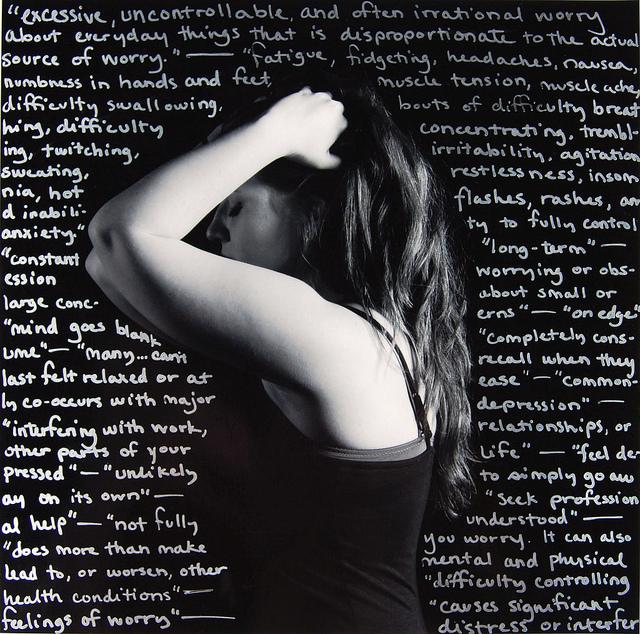Some days are worse than others
May 3, 2016
I was 13 years old when I had my first anxiety attack. After eight years, it’s still difficult to talk about the hard stuff.
It doesn’t matter where I am or what time it is, my heart can start beating like a drum line and it can feel like someone is pressing down on my chest taking each breath. I tend to get stuck and think my only lifeline is the sleeves of my sweater or my cellphone.
I avoid eye contact, not because I’m not listening to what someone is saying, it’s because I hope the person doesn’t notice the shakiness in my voice. Sometimes, I can’t seem to find the words to speak because my insecurities come to play. My body can feel like it’s on fire and I can’t explain why I get so frustrated out of nowhere.
Anxiety is a feeling of worry, fear or nervousness about confronting a challenge. According to Anxiety and Depression Association of America, anxiety affects over 40 million people in the United States from the ages of 13 and older. According to National Institute of Mental Health there are 22.8 percent of severe cases of anxiety.
People who suffer from anxiety are three to five times more likely to go to the doctor and six times more likely to be hospitalized for psychiatric disorders than those who don’t have anxiety. It’s not uncommon for people with anxiety to also be diagnosed with depression. Nearly one-half of people who suffer from depression have been diagnosed with an anxiety disorder.
According to Anxiety and Depression Association of America women are more likely to be affected by post traumatic stress disorder (PTSD) than men. Rape is a common trigger for PTSD victims: 65 percent of men and 45.9 percent of women who are raped will develop this disorder. PTSD often leads to flashbacks and behavioral changes.
Association for University and College Counseling Center Directors reported from a survey in 2013 that 41.6 percent of college students had concerns with anxiety followed by 36.4 percent dealing with depression. In 2014, according to the American College Health Association, National College Health Assessment survey reported that one in six college students had been diagnosed, or treated for anxiety.
Take a deep breath. If you think you have anxiety or know you have this illness, it’s important to seek help with a health professional and those who understand what you’re going through. Treatments come in therapy, medication, complementary and alternative treatment.
Cognitive-Behavioral treatment is highly effective and a lasting treatment that focuses on understanding, identifying, changing thinking and behavior patterns. Treatment is short-term and is more affordable than other therapy options. If you want an alternative treatment that doesn’t involve medicine, there are several stress and relaxation techniques. Meditation and yoga are effective for short-term relief.
Medication treatment is effective to relieve some symptoms of anxiety, but it’s important to remember that it’s temporary relief and has dangerous side effects. If you seek medication for treatment, it’s important to talk to your health professionals to go over options and treatments that are right for you.
Most of the time, there isn’t a problem or reason for an attack. Some days are better than others. Some days there’s a dark cloud over you that will not seem to go away, but they’re just days and you have more.







































































Kevin • May 11, 2016 at 11:23 am
Where can you seek cognitive-behavioral treatment that is affordable?
Therapy can be expensive appointments cost around $120/hr, and most of the time insurance doesn’t cover ongoing therapy. Another suggestion for CBT is certain 12 step programs, but of course you need to be a qualifier to join, which many people are that suffer from this.